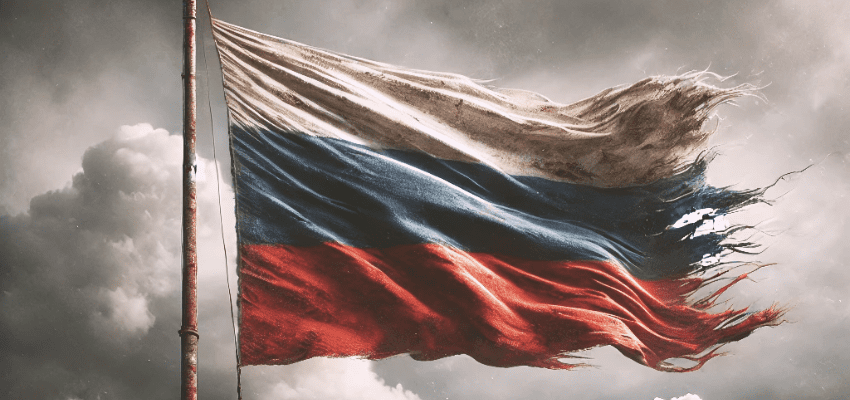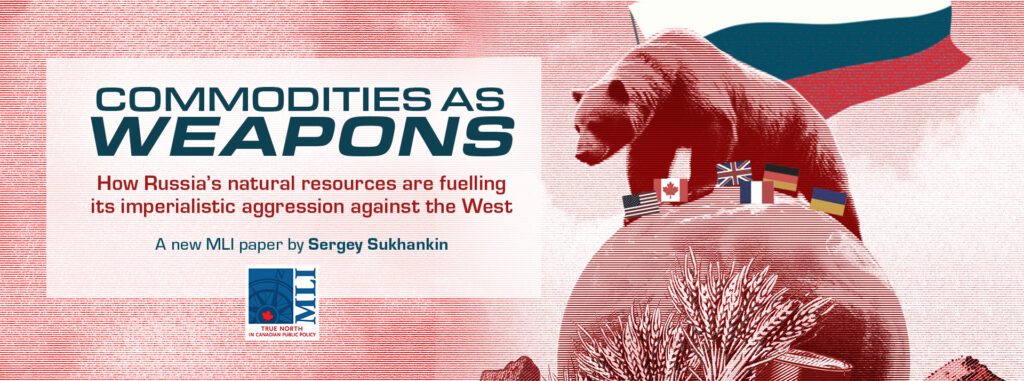This article originally appeared in the National Interest.
By Aurel Braun, November 1, 2024
It’s a truism that all wars must end, and Russia’s campaign against Ukraine is no exception. Under a personalist regime run by Vladimir Putin for almost a quarter century, Russia is particularly difficult to assess or predict, for it is not an ordinary state, and certainly not in a positive sense.
Currently, Putin, physically a small man, has a giant international footprint. Similarly, Russia is a remnant of a failed superpower, with a uni-dimensional energy-based economy that in nominal terms is only about the size of Italy’s, yet exercises outsize international influence.
Predictions for the aftermath of the conflict, whether Russia will decline or pose some unforeseen threat to NATO, leave much to be hypothesized in the realm of domestic driving forces and policy. Predictions for the aftermath of the conflict, whether Russia would be in decline, or pose some unforeseen threats to NATO, are not just intrinsically uncertain but depend to a remarkable degree on the present status, Russian domestic driving forces of policy, and on how the conflict will end and how that end is perceived.
In Putin’s Russia, domestic factors are intertwined to an exceptional degree with foreign policy decisions. This overwhelming domestic influence and the oversized external threat posed by Moscow defy normal measurements of power. This should not suggest that we ignore the reality that even if we use purchasing power parity (PPP) for GDP, Russia’s economy is still but a small fraction of that of the U.S. or China and far smaller than that of India.
Nonetheless, Russia, which barely qualifies as a great power, continues to project power and threaten neighbors far above its punching weight.
What Accounts for Putin’s Disruptive Power?
The answer includes the largest nuclear arsenal in the world; Moscow’s repeated nuclear threats and the Kremlin’s ruthless willingness to project power, especially in the former Soviet space. This reinforces a neglected geopolitical rule: the ability to project power and threaten neighbors and international stability are not strictly correlated with economic weight or trade competitiveness.
Putin’s overall unlimited power ambitions; the absence of meaningful domestic restraints on his power, Western fecklessness, wishful thinking in responding to Russian aggression, and Ukraine fatigue among Western states all contribute to continuing threats. Moreover, Russia’s “disruptive assets” may foreshadow potential future Russian threats to NATO following a possibly irresponsible settlement of Russia’s war against Ukraine.
Still, fundamental shortcomings do eventually have an impact, especially if opponents respond intelligently. Putin, unable or unwilling to resolve the fundamental economic and political problems within Russia, has looked to international adventures as a means of diversion and of converting external “successes” into domestic popularity and political legitimacy.
Ironically though, he has trapped himself.
Looking at what I would call “a 30-year rule” whereby 1975 the defeated and devastated fascist Italy, Nazi Germany, (The Federal Republic) and militaristic Japan, had become thriving, democracies, successful economies, and fiercely competitive international traders, Russia, the largest territorial state in the world, with unparalleled natural resources and a well-educated population, is actually an embarrassing laggard. This only exemplifies the failure of the Russian Federation under the Putin regime.
Under Putin, Russia has wasted historical opportunities to transform itself into a modern successful state, the state has sacrificed lives and treasures in a disastrous war in Ukraine and has become increasingly dependent on China and rogue states like Iran and North Korea, with the risk that in the future it could become a vassal of Beijing’s.
Further, The Kremlin’s threats have reinvigorated NATO and drove two key neutral states, Sweden, and Finland to become members of the Alliance. Russia under Putin is indeed a failed state where he mortgaged his country’s future for his own retention of power.
Yet, fundamental weakness in a nuclear state with a large army is paradoxically provocative. Putin‘s massive domestic failures make Russia a continuing threat, great power or not. External diversion is critical to his staying in power.
Any kind of settlement in Ukraine that would allow Putin to hold the territory that he has illegally conquered, especially combined with a prohibition for Ukraine to join, NATO would embolden him and legitimize his warmongering as a successful policy.
This fact cannot be emphasized enough.
For Russia to cease to be a threat to NATO in the future, the ideal war termination would be the implementation of the strategy outlined by former British Prime Minister, Boris Johnson, “Russia should ultimately fail and be seen to fail”.
Realistically, that lofty goal currently may be unattainable. NATO and Ukraine, though, are hardly helpless.
Despite very difficult odds, Ukraine has prevented significant loss of territory in the past year and took some areas in the Kursk Oblast of Russia. President Zelensky claims to have a victory plan, but the reality is that Kyiv’s forces remain hard-pressed.
The U.S. and NATO though generous overall, and with a power capacity vastly exceeding that of Russia, have been often too timid and too slow in providing Ukraine with key aid. The West could do more, our nuclear deterrence remains credible and the Putin regime is containable and ultimately vulnerable. Personalist regimes, in Putin’s case one that is more Mafia than Machiavelli, are transitory.
Putinism is unlikely to long survive his departure.
Still, for the sake of peace now, Ukraine and the West may need to agree to some territorial concessions, but for NATO to manage a future Russian threat, it must ensure that Russia is perceived to have lost overall in its aggression in Ukraine.
But how?
A peace agreement that makes territorial concessions contingent on NATO membership for Ukraine would draw a bright red line that would ensure sovereignty and safety for over eighty percent of Ukraine, contain Russia, and position the Alliance well to await Putinism’s eventual collapse under its toxic weight.
Aurel Braun is currently a Professor of International Relations and Political Science and a Fellow of Trinity College at the University of Toronto, as well as a Advisory Board Member with the Macdonald-Laurier Institue.







